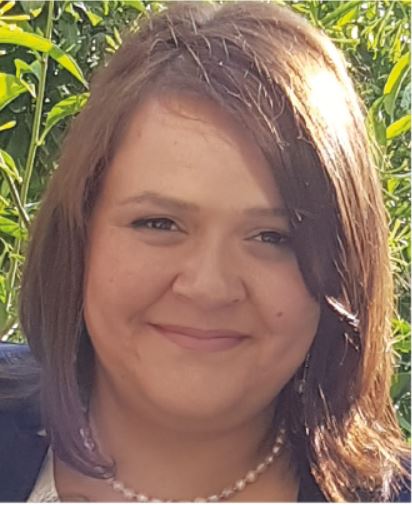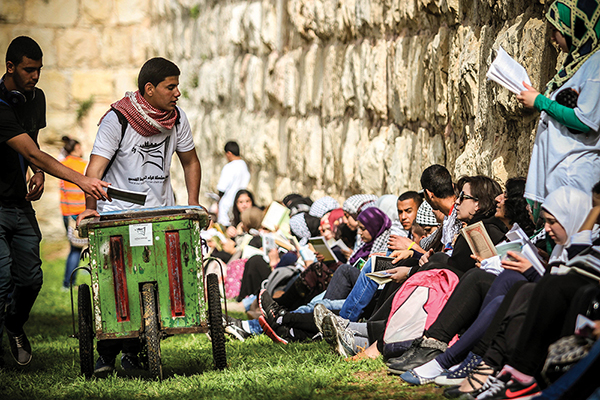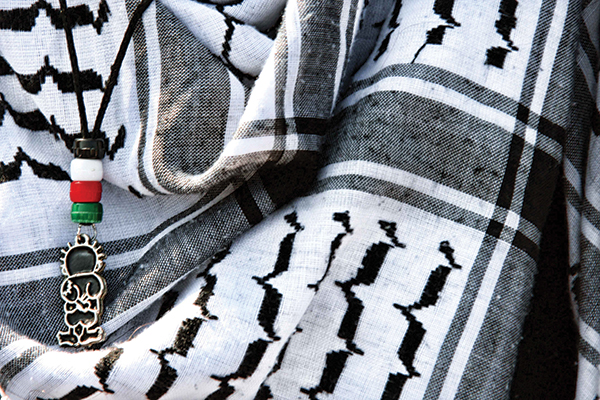
Young and strong, with a stone in one hand and a bullet in the neck is the image du jour right? Young, with a school-book bag on his back, running home after the end of the school day, shot, left to bleed; his hands reach out in front of him hoping someone will help him up, a strangled call for mama comes out and the video ends. A mother buries her seventeen-year old, another her thirteen-year old, and another her twenty-something son, the bookworm with the contagious smile. All these murdered young souls, and more, have been our daily dose of the reality we live in. Our children, the hope for a better future, are moving targets with trigger-happy Israeli occupation forces aiming and shooting to kill.
♦ “Young people are capable, when aroused, of bringing down the towers of oppression and raising the banners of freedom.” – Nelson Mandela
When I first sat down to write this piece, I thought that surely, when speaking of Palestinian resources, one cannot ignore the most precious of them all, human beings, especially youth. Palestinians themselves are and always have been Palestine’s treasure. It is the human, living memory of our history that keeps us alive today. The ability to continue to remember and to not forget is not an attribute of oil fields, or gold mines, or quarries but rather a human resource. While the old have certainly died, the young have certainly not forgotten.
I am not here to preach to all of you; I write to you today, humbly, as a mother and an educator. I am someone who on both personal and professional accounts is involved in the heavy industry of human making. A friend of mine said to me, “Teaching is scary.” It is, I agree. Nothing is scarier than standing in front of a class filled with eighteen-year olds, challenging them to look deep down, to journey inwards to find knowledge and understanding. I am scared when I have to make cut-throat decisions about students’ class choices that will forever change the course of their lives; and it is unbelievably terrifying when one realizes that teaching is not only the industry of making humans, it is the industry of making the future – mixed with love, hope, and hard work.
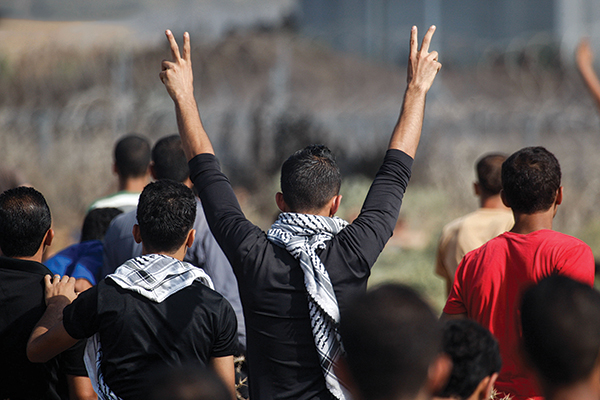
But why do I begin like this? Why these three disconnected introductory paragraphs? Why not begin with statistics? Isn’t that more powerful? When speaking of a resource, readers always want to translate the conversation into numbers. It is numbers and statistics that I am trying to avoid, because in Palestine we are often reduced to nameless, faceless, story-less statistics. Nonetheless, for those of you wishing to anchor my argument into numbers, here is what a quick search on youth in Palestine brings up. According to the Palestinian Central Bureau of Statistics, and based on their report published in 2014, Palestinian society is comprised of one third of youth between the ages of fifteen and twenty-nine years. 38.1% of those are of adolescent age, with the remainder between the ages of twenty and twenty-nine. In 2014, the Palestinian population was at 4.85 million. Thirty percent of that amounts to about 1.6 million. The area over which those 1.6 million youth are spread out is not even comparable to the state of California. Thirty percent of our population is our most valuable resource. Palestine is literally a mine of young people where youth are clustered in every home and every corner, waiting to be cultivated – but they are not. If our youth were made of gold, we would be mining them most efficiently, most rapidly, and most systematically. But they are not made of gold, and we are most certainly not cultivating them as we should.
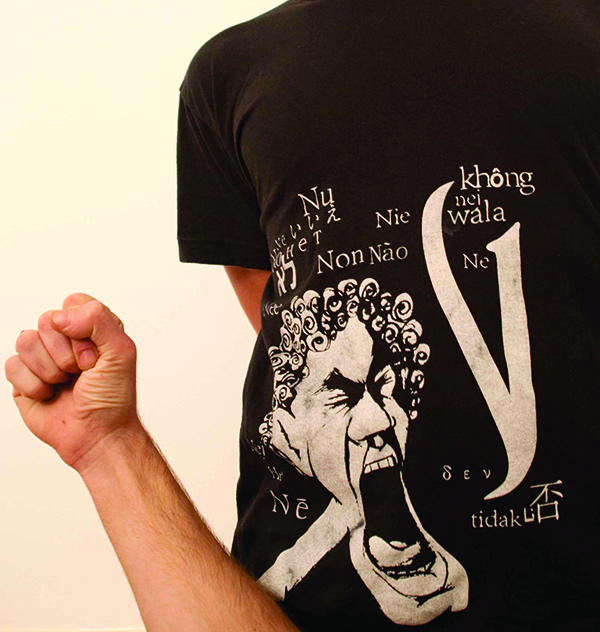
In the wake of the latest clashes, we the adults, educators and intellectuals, were quick to judge, label, and make bold statements. Our factional leaderships were quick to dispatch one statement after the other calling on our youth to continue their rising against the occupation. Our political leadership remained silent; and when statements were made, they hardly rose to meet the heat of the occasion. Mothers burying their children were seen dancing in front of their sons’ and daughters’ bodies and social media outlets raved with photos of masked young men and women on the front lines of clashes with Israeli occupation forces. But no one, not one of us, including us educators, stopped for a brief instantaneous moment and asked: what do our youth want? Should we encourage them to continue with this? Should we complement this with a clear national dialogue on where we are going? Or perhaps, in the wake of all this death, all this blood of beautiful, courageous, promising young men and women, perhaps we should stop talking and just listen to the thirty percent of our population. Perhaps we should listen to the glittering of our gold mines before we actually take a chisel to them.
♦ “I pay tribute to the endless heroism of youth.” – Nelson Mandela
In the last week or so, journalists, writers, and intellectuals started to finally come out of their confusion. Many statements remain vague, but messages like “Palestine needs you alive,” and “We do not send our children to their death” are more visible in several pieces by different journalists in local media. What makes these pieces unique is that there is no passing of judgment on anyone. In fact, there is a clear message that our children are victims and are being shot dead by a vicious occupying force. Our youth are criminalized, often simply for walking down the street and daring to pull out a cell phone to answer a call. Our children are moving targets.
What we need to do, as an older generation, is to admit that the responsibility of the Palestinian cause should not be thrown with its full weight on the shoulders of Palestine’s most valuable resource. We need to be honest and admit that the popular uprising on the streets is only one facet of our prismatic struggle, that our cause is not a local but an international one, and that it does not begin nor end with the rise or fall of an intifada. It will end when the world decides to address it seriously and not hide it. It will end when the world admits that this is not a conflict but an apartheid regime with an oppressor and an oppressed, and then take brave practical steps deeply rooted in justice to resolve the status quo.
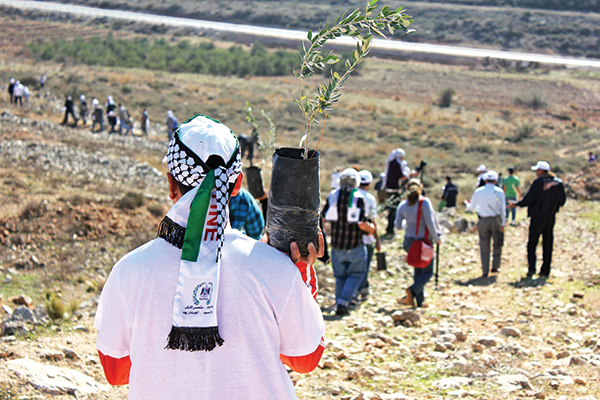
With this rising, we must be careful for it may not end well, much like its older sisters. Faris Sabaneh writes “We should be very careful with this rising, so that it does not turn into a major disappointment.” A major disappointment for our hopeful and angry youth can make fertile grounds for groups who are only interested in the militarization of the struggle which can quickly drive all of us into sinking refugee boats.
So what can we do? Allow me to be blunt. To those with the old rhetoric, have mercy on us. We should stop trying to bring old narrative back into today. What worked in the first intifada may not be exactly what will work today. So a word of advice to all of us who want a nostalgic repeat: please spare us your old rhetoric and let us first listen, then try to speak the language of today’s youth. What makes them so special is that they belong ever so little to a political faction, but oh so much to Palestine herself. Today’s youth are technologically sophisticated, intellectually aware, and many of them are worldly beyond your comprehension; what they need is your guidance rather than your preaching and judgment.
To us educators: let the youth speak, let them write, let them cry, and it does not matter if it happens in our offices, in our playgrounds, or in organized school activities. They need to be heard as much as they need an excellent education. Talk to them, listen to them, provide them with learning moments they will forever remember, and when they push you to see how far they can go, remind them that resisting an occupation begins with learning discipline. It begins with their ability to negotiate the unruly landscape of emotional struggle between continuing their education and staying in class, because that is where they belong, and participating actively in a social and political movement. And most important of all, remind them that you, the educator, the adult, have no magical answers, that you struggle inwardly everyday with what is happening, that you do not think that you are any better or luckier than those executed on checkpoints. Admit to them that without a cross-generational dialogue nothing can be done. But also, do not be afraid to tell them that you want each and every one of them alive, that age has taught you that death is an inevitable fate for all of us, but the power of change resides with the living, with those who can continue to write the Palestinian narrative. Yes, go ahead, admit it, none of us wants to bury our children alive. None of us – including the mothers of martyrs.
Finally, to those of us who are political leaders and ministers: just listen, listen to the ebb and flow of love for Palestine; to the anger and desperation this generation feels. Remember that our children, too, are not in love with violence, neither are they blood hungry. They are angry; they are in search of dignity. Do not ask them to riot more violently, or not riot at all. Just listen, and acknowledge that we, the older generation, failed them. Know that this generation is speaking directly to you, not only to the occupation. They want something different, they want something new, and most important of all, they want a hopeful future. So listen first, then speak, and when you do, base your message on facts and statistics. Strengthen your positions and lines of reasoning with well-thought-of arguments rather than emotional, symbolic speeches. Give them practical solutions and clear visions.
If Palestine were a mine, then thirty percent of it would be made of pure gold. Now would you throw that into burning tires? Or at racist, blood-thirsty soldiers? Our youth is our gold; with them we are rich and hopeful, and without them we are poor, old, and desperate.
» Dr. Riyam Kafri AbuLaban is an educator, a writer, and a school principal. She spends her free time reading and writing the Palestinian narrative through her kitchen. She can be reached at riyam.kafri@gmail.com.

